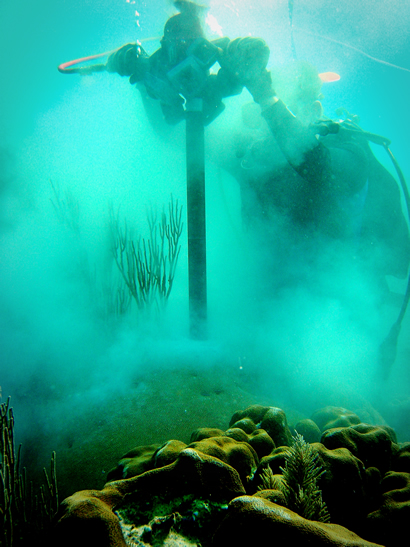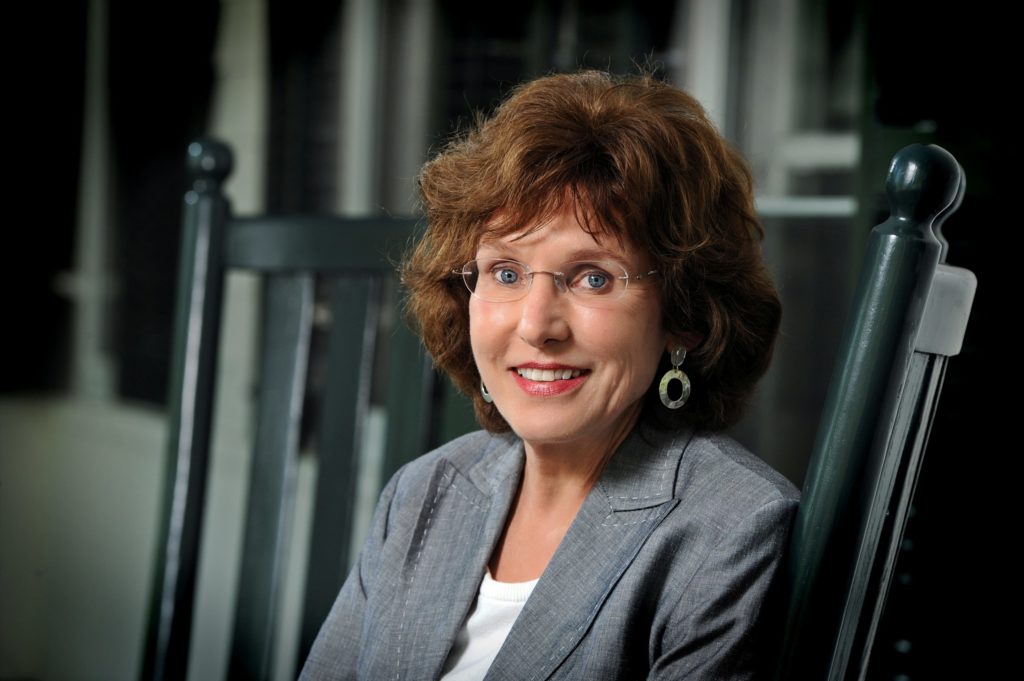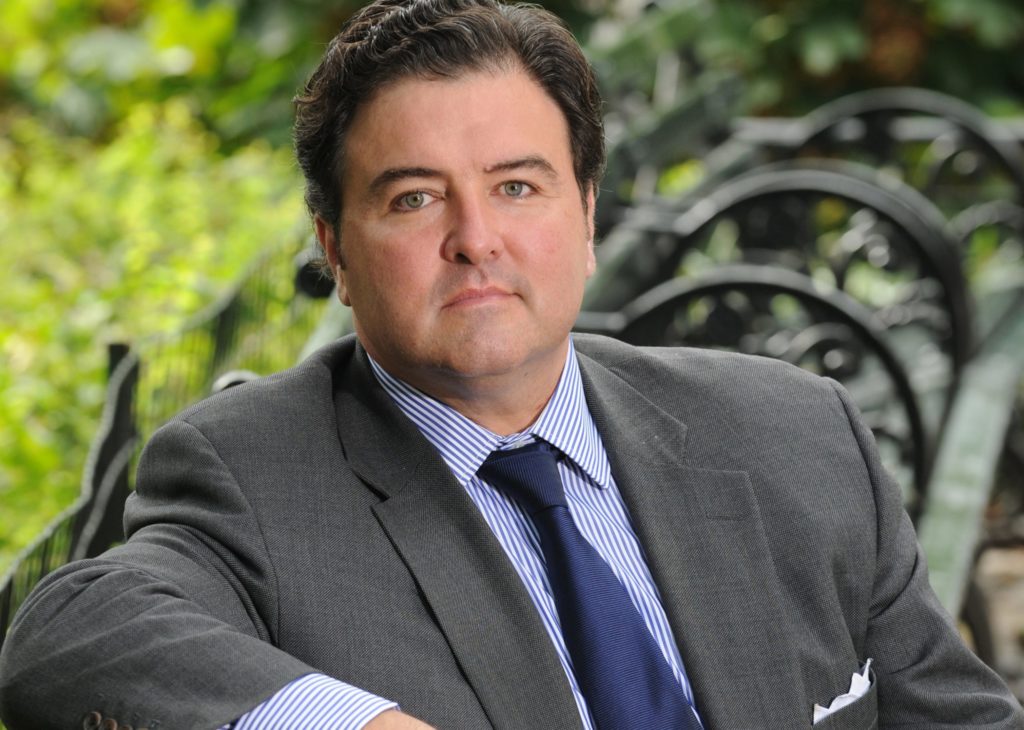
“Transformative” is the word professors Glenn Hinson and Stefan Jeglinski use repeatedly when speaking about the courses they’ve developed through the University of North Carolina at Chapel Hill’s Quality Enhancement Program (QEP), a five-year initiative to enhance the undergraduate learning experience through “connecting, doing and making.”
UNC currently offers 30 undergraduate courses developed with QEP funding and support. A call for proposals issued the week of Oct. 16 will offer UNC faculty the opportunity to apply for grants and peer support to develop new courses and research experiences for undergraduates.
Hinson, associate professor of folklore and anthropology, encourages instructors of all academic disciplines to explore what the QEP courses can offer.
“Don’t make the mistake I did when I saw the first QEP call for proposals in 2016,” Hinson said. “I thought the courses were aimed only at STEM areas and did not see my classes in that category. I deleted the email.”

A colleague pointed out that the Course-Based Undergraduate Research Experience (CURE) component of the QEP could work well in his “Southern Legacies: The Descendants Project” course.
“I read more about it and realized that conceptually, the processes for learning in the sciences and learning in the humanities are not inherently different. Experiential learning doesn’t have to be restricted to the sciences,” he added.
His new QEP Descendants course will explore the erasures of Southern blacks by locating and interviewing the descendants of lynching victims in North Carolina.
“My students will learn about the impact of social issues on communities by going out into communities and engaging directly with people who are impacted,” said Hinson. “By inviting them to think differently, students can transform the way they understand the world.”

Jeglinski, assistant teaching professor in the department of physics and astronomy, said students taking his Physics 100 “How Things Work” class this semester will use a UNC makerspace to make a clock component, called an escapement, and then explore variations or conduct experiments of their own design with the escapement.
“My students are not the science students who are typically required to take a physics course. Although some have taken physics before, many are non-scientists—they have an interest in physics, but may be intimidated by the subject, and quite possibly have never constructed something of their own design or stepped outside of their comfort zone for a required science elective. But by the end of this course, they will have done all of those things,” said Jeglinski. “They are learning a new way of thinking about the world and how things work, and they are transformed by the experience.”
Skills that reach beyond UNC
Jennifer Hazen, teaching assistant professor in the department of public policy, said students in her QEP -funded “Honors Research on Public Policy and Global Affairs” course in spring 2018 will learn skills that they will take beyond their college experience and serve them in the real world.
“They need writing, analysis and presentation skills they don’t always get in the classroom in order to be effective outside the classroom, particularly in the world of developing and influencing public policy,” Hazen noted.
She has structured her course to give students the opportunity to critique and provide feedback on colleagues’ written and oral presentations, and for students to use that feedback to improve their work. The intent is to enable students to learn how to critique their own work, incorporate feedback from others, and ultimately enhance their own products.

Jeglinski was similarly motivated to teach skills that would extend into students’ real lives. “Our world is getting more, not less, technological, and having a basic understanding of how things work and being able to engage with technology on even the simplest level serves students in every aspect of their lives. I want them to understand that they don’t really need a special set of skills to do that, that it’s not that hard,” Jeglinski said.
Hinson also sees his class as an opportunity for students to experience learning that would have real-life ramifications lasting far beyond their time at UNC. “As a result of this class, they will take a different kind of role as citizens of the world,” Hinson said.
Enhancing the student experience
All three instructors developed a new course or reworked an existing course to incorporate a QEP component that exposes undergraduate students to meaningful hands-on research and collaborative, interdisciplinary learning opportunities.
The QEP promotes four types of experiences:
- Integrated Curricula that connect the arts and humanities with the sciences or social sciences.
- Course-Based Undergraduate Research Experiences that bring novel research projects into undergraduate courses.
- Makerspace, which integrates a UNC makerspace opportunity into a course.
- Research Exposure Opportunities that provide more infrastructure around undergraduate research.
“Instructors of all disciplines should leap into this opportunity to think broadly and do something really different with their courses,” said Hinson.
QEP components “offer an excellent opportunity to transform courses to go beyond chalk and eraser, beyond theoretical teaching, and give students an interactive, transformative experience,” Jeglinski said.
Physics 100 student Molly Dwyer, a first-year student from Hickory planning to major in journalism, entrepreneurship or creative writing, appreciates the hands-on aspect of Jeglinski’s QEP-supported course.
“He uses everyday objects, such as a guitar or bowling ball, to explain complex physics concepts like sound waves and inertia. Because of these demonstrations, we can begin to see the physics of the world around us,” she said. “He’ll then open up the floor to questions, and these demonstrations will inspire discussions we never would have had if we had simply listened to a lecture.”
Dwyer is constructing her clock escapement in a UNC makerspace using a laser cutter and other tools. “I’ve never used equipment like this before. I would never have tried something like this without this class to guide me how to do it,” says Dwyer.
Financial and peer support
Instructors in any undergraduate discipline are encouraged to develop new or enhance existing courses using a QEP component.
The program offers both financial and peer support for course development:
- Up to $5,000 to develop opportunities for undergraduate research consultant teams from multiple disciplines to execute well-defined, one-semester projects guided by a faculty advisor.
- Up to $3,000 in salary support and a faculty learning community to help instructors incorporate research-related skills into their courses.
- Up to $5,000 in salary support and a faculty learning community for instructors who design a course utilizing UNC makerspaces on campus, which fund course supplies.
- Up to $5,000 in salary support, funds for course supplies or graduate research consultants and faculty learning community for instructors who design a course-based undergraduate research experience (CURE).
- Up to $10,000 for summer salary, travel, equipment, materials or software to develop a co-taught integrated curricula course.
For more information on QEP, visit qep.unc.edu.
Story by Cyndy Falgout




